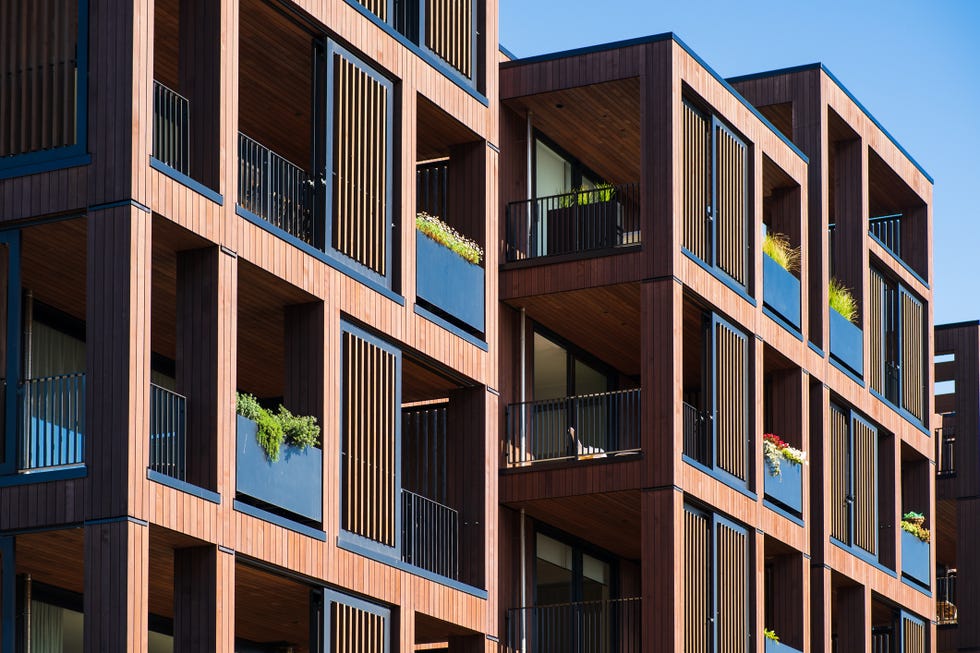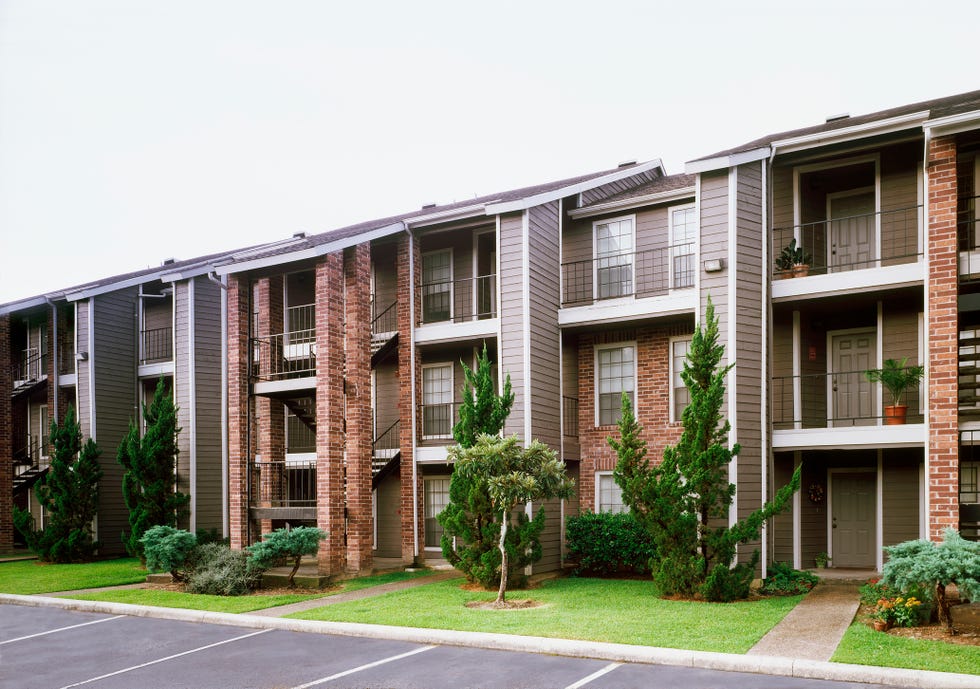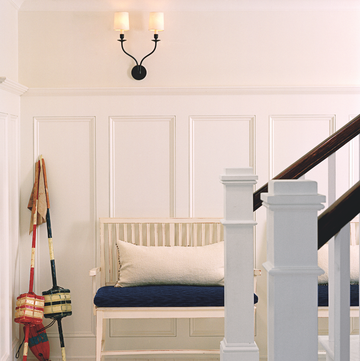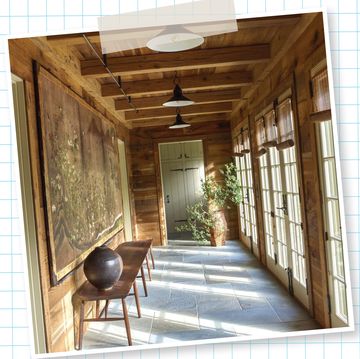Despite being used interchangeably, there is actually a difference between a condo and an apartment. Both styles of housing are individual units within a larger residential building, which may be why they're often thought of as one and the same. The Merriam-Webster dictionary defines a condo as "a unit in a multiunit structure, or on land owned in common (such as a town house complex)." An apartment, meanwhile, is "a room or set of rooms fitted especially with housekeeping facilities and usually leased as a dwelling." These subtle differences can become big ones when you're deciding when or where to move. Which type of housing unit is right for you—condo vs apartment? Below, we break down the similarities and differences between a condo and an apartment, from applying and moving in to moving out.
Housing Basics
The primary difference between a condo and an apartment is that a condo is considered a unit that you own, while an apartment is one that you rent. Technically, a condo is technically owned by a management company, and it has a board or homeowners association (HOA) made up of fellow residents who are responsible for serving as the voice of the tenants and liaising with management. Whether you live in a micro studio or a sprawling, four-bedroom penthouse, both are individual units within a larger residential or mixed-use building.
Moving In
To move into a condo, you must fill out an application. Usually, you submit an offer to purchase the unit in addition to application paperwork that details your financials, lifestyle, and any pets you have. This application, along with your offer, gets reviewed both by building management and the HOA or board. Sometimes there's even an interview with the board. This application must be approved in order to move in.
More From House Beautiful

Depending on where you live, the process for renting an apartment may be very similar. There's often an application that may not be quite so in depth but will still require you to provide bank statements, employment details, and references from past landlords. The application may touch on lifestyle questions (such as how often you throw parties or whether you smoke), but that depends on the landlord. The application will then be reviewed and accepted by the landlord or building management. and you would submit your security deposit and first month's rent. In some cases, you may also be asked to put down your final month's rent as well.
Moving Out
Moving out of a condo is much more difficult than moving out of an apartment. Because you own the unit, you aren't subject to waiting until the end of a lease term to time your move. However, as the owner of the condo you're responsible for finding a new buyer. Unless there's a new buyer, you'll be responsible for all bills until someone new moves in.
With an apartment, you usually have to give your landlord 30 to 60 days' notice that you won't be renewing your lease. After that, you're free to move out at the end of your lease term. The landlord then has a few weeks to review the state of the apartment and return your security deposit. (It's important to give the unit a thorough cleaning, undo any changes you've made like removing wallpaper, and repair any damage before you go to get your full deposit back.) Once the lease term is over, the landlord is responsible for all costs and for finding a new tenant.
Monthly Costs and Fees
Living in a condo requires you to pay a monthly board or HOA fee. This payment, which averages $170 according to the most recent census data, goes toward building-wide maintenance, regular landscaping, renovations or updates to shared spaces, and the cleaning of shared spaces. In some cases, it may cover some of your utilities like gas, water, or sewage. When the board or HOA decides to undertake an expensive project that'll benefit all of the building's residents, like replacing a roof or repaving a parking lot, you may also have to contribute to a special assessment.
An apartment, however, doesn't require you to pay any of those fees. Usually, the landlord covers any building upkeep or maintenance that the property requires.
Additions/Renovations
With a condo, you as an owner typically don't have to get permission to paint or make any other design changes to your unit. However, if your building's co-op board or HOA is a bit overbearing, and especially if you live in a historic building, you may have to present your plans and get approval before any changes can be made.
In apartments, all changes—even minor cosmetic ones—must be approved by your landlord. Even something as simple and reversible as a fresh coat of paint could cause you to lose your security deposit. If you're living in an apartment, it's always better to ask permission rather than forgiveness.
Condo vs Apartment: Which Is Right for You?
The big question that you should ask yourself when deciding between a condo and an apartment is: Are you ready to buy a home? While a condo may not be detached or come with a garage or yard, buying one is akin to purchasing a full-fledged house. It may cost less, but it's still much more expensive than renting an apartment. An apartment gives you much more flexibility when it comes to moving in and out, living somewhere in the short term, and saving money in the short term. Real estate is always a good investment, though, no matter where you live. So read through again and hopefully gain a bit more insight into which property style is right for your next home.















